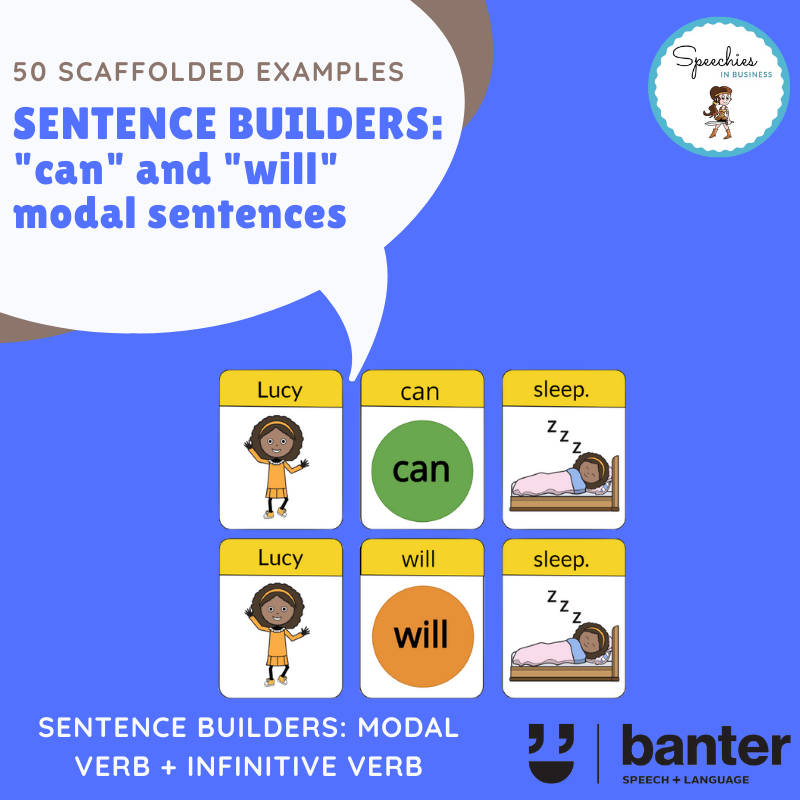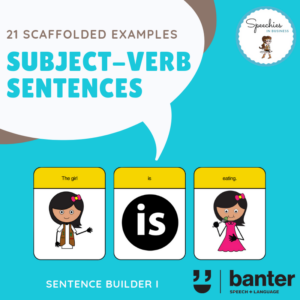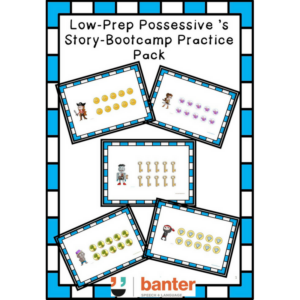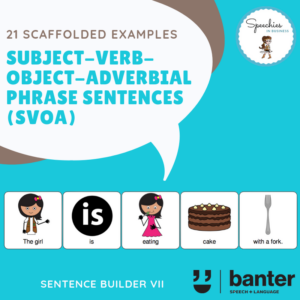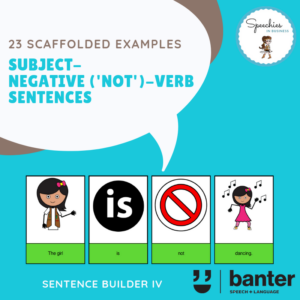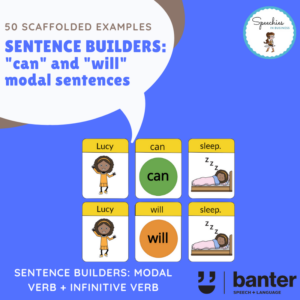(L130) Sentence Builders: ‘can’ and ‘will’ modal sentences
$5.99 including GST
Between 30-36 months of age, typically developing children start to use early modal verbs (e.g. can, will) with infinitives in their sentences. Modal verbs are used to show if an action is certain to occur or possibly occur. Modal verbs are also used to talk about people’s ability to do certain actions and skills.
John can cook. John will cook.
The girl can dance. The girl will dance.
When using this 28-page pack, the adult models the ‘can’ sentence (“Dad can dance.”) and asks the child to repeat the sentence. Then the adult asks the child “What will [Dad] do?” The child responds with “Dad will dance.”. The adult recasts any incorrect responses and then repeats the sentence (“Yes, Dad will dance.”).
Description
Many people who are learning English as a second language and/or who have developmental language delays have difficulties with correct word order in sentences. In this series, we provide simple scaffolds to help people to understand and to speak in grammatically correct sentences correctly.
Between 30-36 months of age, typically developing children start to use early modal verbs (e.g. can, will) with infinitives in their sentences. Modal verbs are used to show if an action is certain to occur or possibly occur. Modal verbs are also used to talk about people’s ability to do certain actions and skills.
John can cook. John will cook.
The girl can dance. The girl will dance.
As the examples illustrate, these sentences include the modal verb (e.g. can, will) and a second verb in its infinitive or “simple” form e.g. eat, read. Some people who speak English as a second language and/or have developmental language disorders need focused practice to learn and to use this grammatical form. This pack is designed to help, with both pictures and words making it suitable for children and adults.
When using this 28-page pack, the adult models the ‘can’ sentence (“Dad can dance.”) and asks the child to repeat the sentence. Then the adult asks the child “What will [Dad] do?” The child responds with “Dad will dance.”. The adult recasts any incorrect responses and then repeats the sentence (“Yes, Dad will dance.”).

